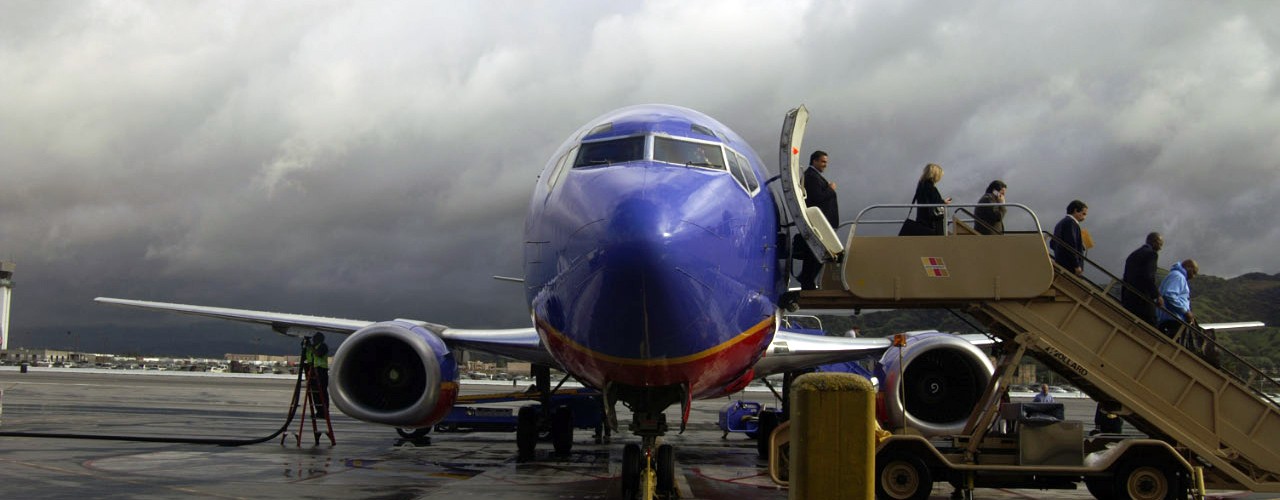
United Airlines and Orbitz have sued a small startup website, Skiplagged.com, for displaying opportunities for travelers to cut costs by using “hidden city” or “point beyond” ticketing. This ploy violates almost all airlines’ contracts of carriage, the legal documents that bind travelers and airlines when they buy tickets. And—unusual in the airline ticket marketplace—the publicity about this website and the countering lawsuit has generated a considerable amount of debate about the “ethics” of violating airline rules. Specifically it raises the question of whether violating airline rules is really unethical of just gaming the system?
Point beyond ticketing (I prefer that term) has been around for decades. In case you haven’t followed, it works because airlines often charge a lot more for a ticket from a “spoke” city to one of its “fortress hubs” than they charge for a ticket from one spoke to another spoke by way of the hub. So travelers who want to fly to the hub buy a ticket from one spoke to another, with a connection at the hub, and just don’t take the connection. Example: On United, a one-way ticket from my home airport, Medford, Oregon, to San Francisco currently costs $299, but a ticket from Medford to Los Angeles with a San Francisco connection costs $92. (FYI, I don’t do this, but I could.)
Point beyond isn’t the only contract-violating consumer ploy to cut costs or gain some other advantage. Sometimes, for example, one-way tickets are less expensive than round-trips, so travelers who need a one-way ticket buy a cheaper round-trip and throw away the return ticket. Also, a few online “coupon brokers” offer to pay frequent flyers to have award tickets issued in the name of someone who has paid the broker, with the broker keeping a spread.
Travelers game the system in other ways, too. I once asked an American Airlines executive why his line operated a flight from Chicago to London that stopped in Boston or New York (I forget which) when United had a nonstop leaving at about the same time. The exec answered that United’s nonstop flight took seven and a half hours, and his one-stop took nine hours. But, he continued, because several big Chicago companies allowed employees to fly business class on flights of more than eight hours, their travelers often opted for the longer flight so they could fly in business class.
Let’s face it: Any complex economic system invites creative individuals to game it—to figure out ways to lower their costs, increase their profits or improve their experience, whatever. And, at least to me, both sides of the point beyond question are behaving unethically.
Certainly, violating a contract is unethical, even if it isn’t illegal and even if the contract is burdensome. The airlines’ position, in my Medford-San Francisco example, is, “We sold you—and you bought—a ticket to Los Angeles, not San Francisco. Not going to Los Angeles violates the contract to which you agreed.” The same argument applies to using a round-trip for a one-way flight or selling frequent-flyer awards. And, at least in theory, airlines can enforce their position by nuking an offending traveler’s entire frequent-flyer account.
On the other hand, airlines are not ethical paragons, either:
- Airline contracts of carriage are inherently unethical: They’re “contracts of adhesion” in which customers must accept detrimental terms with no opportunity to negotiate those terms.
- They routinely charge gouged monopoly fares for flights to/from fortress hubs.
- Giant airlines regularly set out to ruin startup competitors by flooding the startup’s routes with seats and undercutting its fares, only to cut back the flights and hike fares once the competition folds.
From an ethics standpoint, then, it’s a standoff. And whether or not Skiplagged survives, the knowledge remains available to anyone who can Google. Some travelers will always try to game the airline system when they can. Only you can decide whether your gaming efforts should extend to include violating airline rules and contracts.
Ed Perkins Seniors on the Go is copyright (c) 2015 Tribune Media Services, Inc.
You Might Also Like:
We hand-pick everything we recommend and select items through testing and reviews. Some products are sent to us free of charge with no incentive to offer a favorable review. We offer our unbiased opinions and do not accept compensation to review products. All items are in stock and prices are accurate at the time of publication. If you buy something through our links, we may earn a commission.
Related
Top Fares From
Today's Top Travel Deals
Brought to you by ShermansTravel
France: 8-Night Paris, Avignon & Nice...
Infinity Worldwide Vacations
 vacation
$2880+
vacation
$2880+
Poconos: 3 Nts in Garden of...
ResortsAndLodges.com
 hotel
$305+
hotel
$305+
7-Nt Canada & New England Cruise,...
Princess Cruises
 cruise
$839+
cruise
$839+



